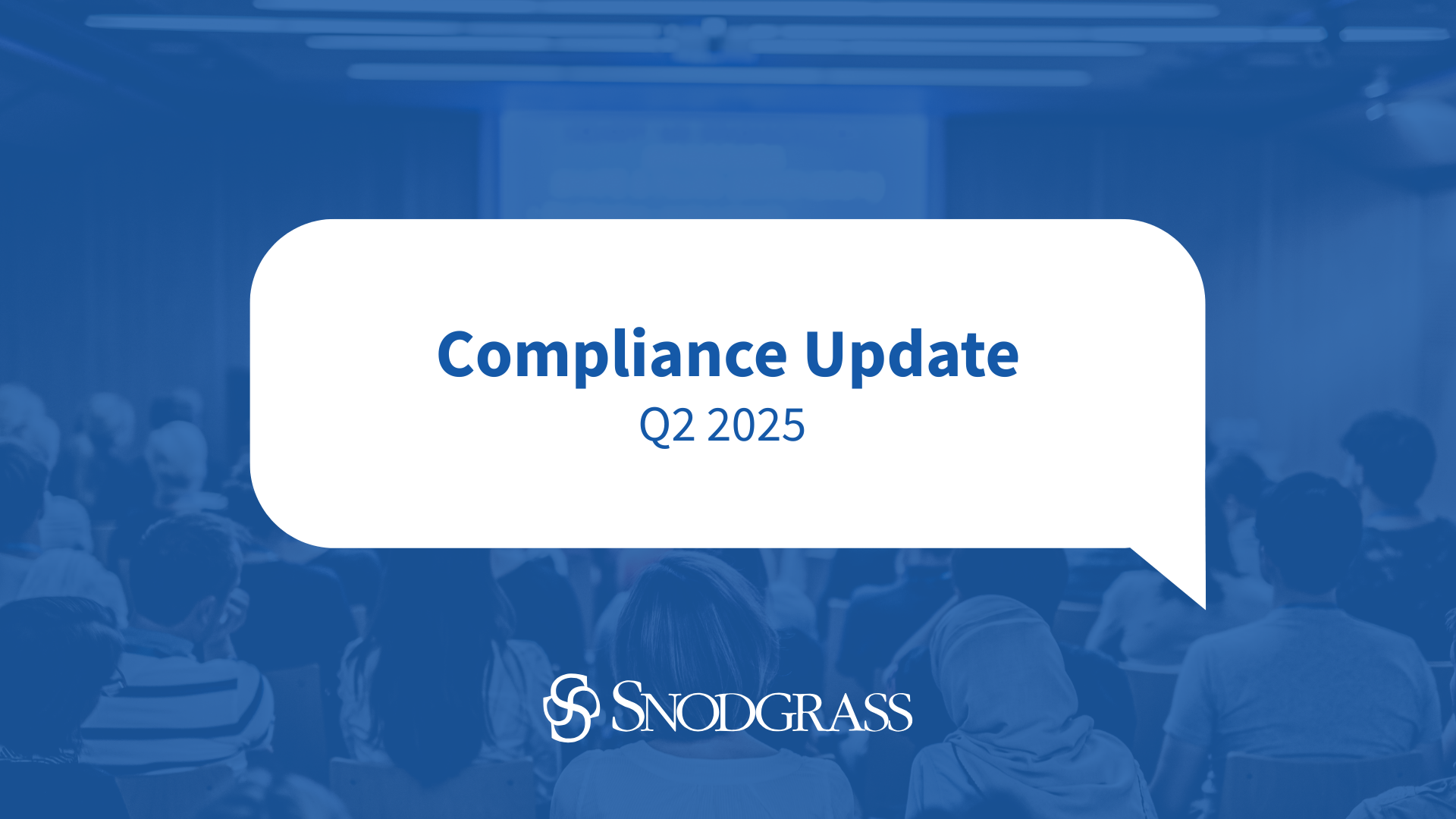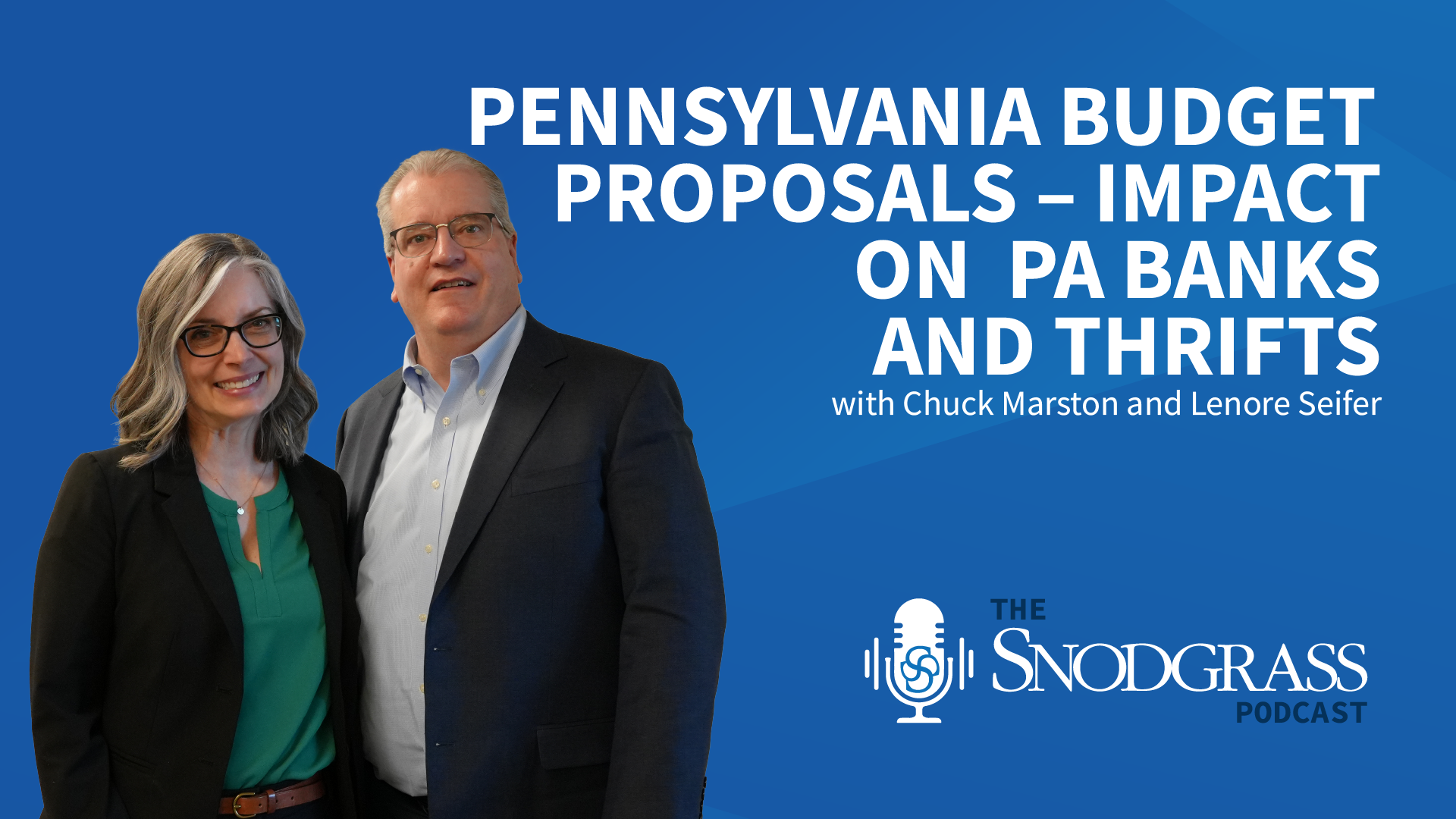Consumer Financial Protection Bureau (CFPB) Finalizes Rule Reducing Credit Card Late Fees to $8 for larger issuers
On March 5, 2024, the CFPB announced it has finalized a rule to cut excessive credit card late fees. The rule will curb fees that cost American families more than $14 billion a year. The CFPB estimates that American families will save more than $10 billion in late fees annually once the final rule goes into effect by reducing the typical fee from $32 to $8 for card issuers that together with their affiliates have one million or more open credit card accounts.
The final rule reduces the current maximum late fees from $30 for the first late payment and $41 for subsequent late payments to $8 and ends automatic inflation adjustments for that amount for issuers that have one million or more open accounts. Specifically, the final rule:
- Lowers the immunity provision dollar amount for late fees to $8
- Ends the automatic annual inflation adjustment. The CFPB will instead monitor market conditions and adjust the $8 late fee immunity threshold as necessary.
- Requires credit card issuers to show their math. Larger card issuers will be able to charge fees above the threshold so long as they can prove the higher fee is necessary to cover their actual collection costs.
- The rule does not change the credit card issuer’s ability to raise interest rates, reduce credit lines, and take other actions to deter consumers from paying late.
The final rule does not adopt these revisions for “Smaller Card Issuers” (i.e., card issuers that together with their affiliates had fewer than one million open credit card accounts for the entire preceding calendar year). For Smaller Card Issuers, the final rule revises the safe harbor threshold amounts for late fees to $32 for the initial violation and $43 for each subsequent violation that occurs in one of the next six billing cycles. The effective date of the final rule will be 60 days after publication of the rule in the Federal Register.
Federal Bureau of Investigation (FBI) Reports Elder Fraud on the Rise
The FBI reported the elder fraud complaints to the FBI’s Internet Crime Complaint Center (IC3) increased by 14 percent in 2023, and associated losses increased by about 11 percent, according the IC3’s 2023 Elder Fraud Report. Five takeaways from the report:
- Elder fraud is an expensive crime. Scams targeting individuals aged 60 and older caused over $3.4 billion in losses in 2023—an increase of approximately 11 percent from the year prior. The average victim of elder fraud lost $33,915 due to these crimes in 2023.
- Older Americans seem to be disproportionately impacted by scams and fraud. Over 101,000 victims aged 60 and over reported this kind of crime to IC3 in 2023. On the flip side, victims under the age of 20 years old seemed to be the least-impacted demographic, with about 18,000 victims in this demographic reporting suspected scams or frauds to IC3 last year.
- Tech support scams were the most widely reported kind of elder fraud in 2023. Nearly 18,000 victims aged 60 and over reported such scams to IC3. Personal data breaches, confidence and romance scams, non-payment or non-delivery scams, and investment scams rounded out the top five most common types of elder fraud reported to IC3 last year.
- Investment scams were the costliest kind of elder fraud in 2023. These schemes cost victims more than $1.2 billion in losses last year. And tech support scams, business email compromise scams, confidence and romance scams, government impersonation scams, and personal data breaches all respectively cost victims hundreds of millions of dollars in 2023.
- Scammers are coming for people’s cryptocurrency. More than 12,000 victims aged 60 and over indicated that cryptocurrency was “a medium or tool used to facilitate” the scam or fraud that targeted them when reporting it to IC3.
https://www.fbi.gov/news/stories/elder-fraud-in-focus
Consumer Compliance Outlook Released
The first 2024 issue of Consumer Compliance Outlook has been released, and is available on the Federal Reserve System’s Consumer Compliance Outlook web page. Included in this issue are articles on:
- Overview of Private Flood Insurance Compliance Requirements
- Consumer Compliance Requirements for Commercial Products and Services
- Compliance Spotlight: Resources to Combat Increased Check Fraud
- Recent Supervisory Data for Institutions the Federal Reserve Supervises
Proposed Nationwide Multistate Licensing System and Registry (NMLS) Fee Increases for Federal Registration and State Licensing
The Conference of State Bank Supervisors, which owns and operates the NMLS, is inviting comments on proposed 2025 NMLS fee changes affecting both state licensing and federal registration of mortgage loan originators. Comments are due by Monday, July 22, 2024, at 5 p.m. EDT.
The NMLS conducted a virtual town hall discussion on the proposal on Thursday, June 13.
Federal Deposit Insurance Corporation (FDIC) Publishes 2024 Risk Review
The FDIC published its 2024 Risk Review, which provides an overview of banking conditions in 2023 in five broad categories: market risks, credit risks, operational risks, crypto-asset risks, and climate-related financial risks. The market risks areas discussed are liquidity, deposits and funding, and net interest margins and interest rate risk. The credit risks areas discussed are commercial real estate, residential real estate, consumer, agriculture, small business, corporate debt and leveraged lending, nonbanks, and energy.
The discussion of operational risks examines the potential negative impact to banks from cyber threats and illicit activity. The crypto-asset risks section discusses the FDIC’s approach to understanding and evaluating crypto-asset-related markets and activities. The discussion of climate-related financial risks focuses on the physical risk of severe weather and climate events to the banking system.
Monitoring these risks is among the FDIC’s top priorities.
https://www.fdic.gov/analysis/risk-review/2024-risk-review/2024-risk-review-full.pdf
Office of the Comptroller of the Currency (OCC) Approves Final Rule on Automated Valuation Models
The OCC approved a final rule to implement quality control standards for automated valuation models used by mortgage originators and secondary market issuers in valuing residential real estate collateral securing mortgage loans.
The rulemaking supports Acting Comptroller of the Currency Michael J. Hsu’s priority to reduce inequality and elevate fairness in banking.
Final Rule (PDF):
https://www.occ.gov/news-issuances/news-releases/2024/nr-occ-2024-66a.pdf
Agencies Issue Guide to Assist Community Banks to Develop and Implement Third-Party Risk Management Practices
Federal bank regulatory agencies released a guide to support community banks in managing risks presented by third-party relationships.
Community banks engage with third parties to help compete in and respond to an evolving financial services landscape. Third-party relationships present varied risks that community banks are expected to appropriately identify, assess, monitor, and control to ensure that their activities are performed in a safe and sound manner and in compliance with applicable laws and regulations. These laws and regulations include, but are not limited to, those designed to protect consumers and those addressing financial crimes.
The guide offers potential considerations, resources, and examples through each stage of the third-party relationship and may be a helpful resource for community banks. While the guide illustrates the principles discussed in the third-party risk management guidance issued by the agencies in June 2023, it is not a substitute for that guidance.
Agencies Announce Inflation-Adjusted Dollar Thresholds for Regulation CC Funds Availability
The Federal Reserve Board and the CFPB jointly adjusted for inflation dollar amounts relating to the availability of customer funds.
These changes in Regulation CC include the minimum amount of deposited funds that banks must make available for withdrawal by opening of business on the next day for certain check deposits as well as the amount of funds deposited by certain checks in a new account that are subject to next-day availability.
By law, the agencies are required to adjust these dollar thresholds every five years by the annual percentage increase in the Consumer Price Index for Urban Wage Earners and Clerical Workers (CPI-W). The inflation measurement period for this adjustment began in July 2018 and ended in July 2023.
To help ensure that depository institutions have sufficient time to implement the adjustments, the compliance date for the new amounts is July 1, 2025.
https://www.federalreserve.gov/newsevents/pressreleases/files/bcreg20240513a1.pdf
Request for Information Regarding Mortgage Closing Costs
The CFPB is seeking comments from the public related to fees charged by providers of mortgages and related settlement services. Comments must be received on or before Friday, August 2, 2024.
Mortgages come with many associated fees and costs, referred to as “closing costs,” that are due by the time the loan closes or when the borrower signs the loan agreement. These closing costs, and particularly the costs the lender imposes on the borrower as part of the cost of getting the loan, have recently risen sharply. Lenders are also impacted by rising closing costs. The cost for credit scores, credit reports, and employment verification, for example, have all increased markedly over the last few years. These higher costs are passed on to the consumer or eat into lenders’ bottom lines, in a market where mortgage originators are already facing financial challenges
Small Business Lending Rulemaking
A final rule has been issued to implement section 1071 of the Dodd-Frank Act.
In the Dodd-Frank Wall Street Reform and Consumer Protection Act, Congress directed the Bureau to adopt regulations governing the collection of small business lending data. Section 1071 of the Dodd-Frank Act amended the Equal Credit Opportunity Act (ECOA) to require financial institutions to compile, maintain, and submit to the Bureau certain data on applications for credit for women-owned, minority-owned, and small businesses.
Congress enacted section 1071 for the purpose of:
- Facilitating enforcement of fair lending laws
Enabling communities, governmental entities, and creditors to identify business and community development needs and opportunities for women-owned, minority-owned, and small businesses
Compliance Date Extension
The CFPB is extending compliance deadlines for the small business lending rule. After the CFPB issued this rule on March 30, 2023, some lenders filed challenges against it in federal court in Texas. On July 31, 2023, that court stayed the rule for certain lenders pending the Supreme Court’s decision in CFPB v. Community Financial Services Association of American, Limited (CFSA); on October 26, it extended that stay to all lenders covered by the rule. In the event of a reversal in CFSA, the Texas court ordered the CFPB to extend the rule’s compliance deadlines to compensate for the period stayed.
On June 25, 2024, the CFPB issued an interim final rule to extend compliance deadlines. As 290 days have elapsed between the July 31 order and the CFSA decision on May 16, the interim final rule extends compliance dates as follows:
Compliance Tier | Original Compliance Date | New Compliance Date | First Filing Deadline |
Tier 1 institutions (highest volume lenders) | October 1, 2024 | July 18, 2025 | June 1, 2026 |
Tier 2 institutions (moderate volume lenders) | April 1, 2025 | January 16, 2026 | June 1, 2027 |
Tier 3 institutions (smallest volume lenders) | January 1, 2026 | October 18, 2026 | June 1, 2027 |
Small business lending rulemaking | Consumer Financial Protection Bureau (consumerfinance.gov)
Financial Crimes Enforcement Network (FinCEN) Issues Year in Review for Fiscal Year 2023
FinCEN issued its Year in Review for fiscal year 2023. The Year in Review is intended to help stakeholders gain insight into the collection and use of Bank Secrecy Act (BSA) data, including FinCEN’s efforts to support law enforcement and national security agencies. The Year in Review includes statistics from fiscal year 2023 on BSA reporting and how it is queried and used by law enforcement agencies. For example, the FBI identified that in fiscal year 2023, nearly 15.42 percent of active investigations were directly linked to Suspicious Activity Reports and Currency Transaction Reports. The Year in Review also includes information on how FinCEN uses and analyzes BSA reporting to fulfill its mission, including to support alerts, trend analyses, and regulatory actions. The publication of the Year in Review is in furtherance of FinCEN’s commitment to provide information and statistics on the usefulness of BSA reporting, consistent with Section 6201 of the Anti-Money Laundering Act of 2020.
Year in Review:
https://www.fincen.gov/sites/default/files/shared/FinCEN_Infographic_Public_508FINAL_2024_June_7.pdf



